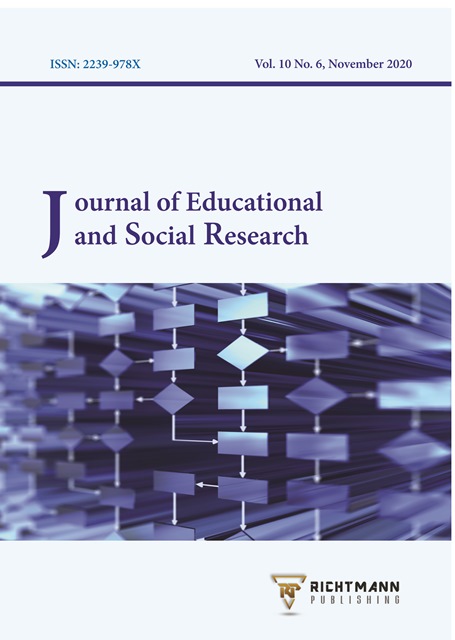Managing the Psycho-Social Vacuum of COVID-19 among Rural Learners through Ubuntu
DOI:
https://doi.org/10.36941/jesr-2020-0125Abstract
The advent of COVID-19 has thrown the world in upheaval, most notably in the operationalisation of secondary schools. Observation, bodies of existing literature, and experience have shown that rural secondary school learners are disillusioned and uncertain on the future of their academic development amidst the “psycho-social” vagueness regarding their schooling and well-being. This study draws its background from South African teachers’ perspectives and proposed Ubuntu as relational framework lensing through Transformative Paradigm to respond to the problem. Critical Emancipatory Research was adopted as a research design. Five secondary schools located in Thabo Mofutsanyane municipality of the Free State, South Africa, form the research site. Two teachers each were selected from the schools using the opportunistic selection approach. A semi-structured interview was used to collect data from the teachers on the challenges faced in managing learners during the pandemic and how to manage the effect of COVID-19 on the learners. Socio-thematic Analysis (StA) was used to analyse the data. The findings showed that learners in rural areas are disadvantaged through the poverty line, affected psycho-socially, and that the need for sociological and psychological supports for teachers and learners becomes expedient in the management of the vacuum created by COVID-19. The study concluded that the principle of Ubuntu during and after COVID19 is a possible means to ameliorate the vacuum.
Downloads
Downloads
Published
Issue
Section
License
This work is licensed under a Creative Commons Attribution-NonCommercial 4.0 International License.









